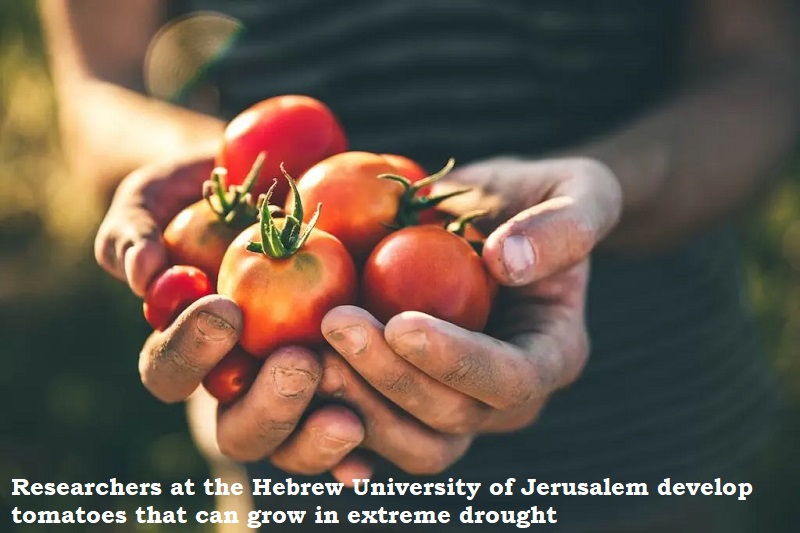
The Hebrew University of Jerusalem’s researchers have succeeded in developing tomato varieties that can produce high yields even under extreme drought conditions.
Their study, ‘Epistatic QTLs for yield heterosis in tomato,’ published in PNAS, was led by doctoral student Shai Torgeman and Professor Dani Zamir from the Faculty of Agriculture, Food and Environment in Rehovot. The study showed that interactions between two regions of the tomato genome led to higher yields and a reduction in water consumption, which is beneficial in extreme weather conditions. The research was part of the European Union’s Horizon 2020 program.
Meanwhile, a survey shows that more than half of Israelis prefer to have tomatoes in their salads, while 18% eat plain tomatoes and 11% enjoy them cooked in shakshuka. Unfortunately, the changing climate and severe water scarcity may affect the availability of tomatoes in the market.
The research has demonstrated the effectiveness of using wild species for cultivating plants in agriculture. The unique structure of the new population enabled the precise mapping of tomato genes and the identification of mutual effects, providing potential for comprehensive application in other plants and yield improvement.
Tomatoes grown in open fields require protection from pests, nutrition, and regular watering, but climate change and water scarcity necessitate alternate varieties and modern cultivation methods. The researchers crossbred two types of tomato species, Solanum pennellii and Solanum lycopersicum, to create a new population.
Solanum pennellii is a green-fruited, drought-tolerant wild tomato from the deserts of western Peru, and Solanum lycopersicum is a modern processing tomato inbred. The researchers identified the regions of the genome that affect yield and agricultural traits.
Professor Zamir carried out DNA sequencing and extensive data analysis of 1,400 plants. He noted that ‘yield barriers are only there to be broken’ and that the team’s integrated breeding efforts combined classical and genomics-assisted methods.
Torgeman explained that complex trait studies in plants, such as yield and drought resistance, have typically been based on smaller populations of about 200 species. However, the research findings revealed that two regions on different chromosomes produced a 20 to 50% increase in overall tomato production under irrigated and drought conditions.
Based on the knowledge obtained from the study, the team is now cultivating new tomato varieties with the aim of commercializing them on the food market.

Post Your Comments